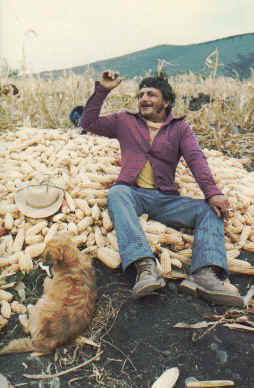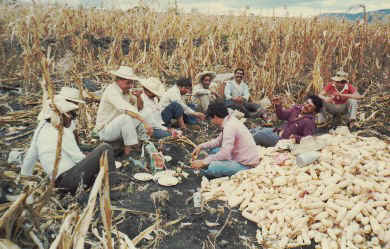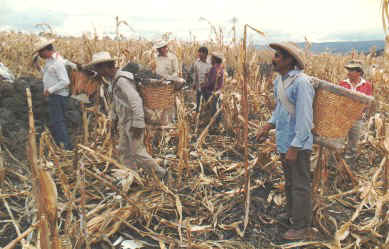Anthropologists focused initially on the so-called "exotic", "tribal" peoples of the world — the kind of societies that were of no interest to other social scientists and historians at the time. But even Malinowski’s writings on the Trobriands were full of references to the imminent disappearance of the "primitive", and Malinowski’s final piece of ethnographic work was, in fact, a study of peasant marketing systems in Mexico. The study of "peasant societies" was therefore a way of broadening the range of so-called "traditional societies" that anthropologists could study.
 But it was also a way in which anthropologists could extend their discussion of "social change": changes in land tenure systems, the development of market economies and cash cropping, the growth of migrant wage labour and the growth of urban economies on the "periphery" of the capitalist world economy — all this was changing the lives of even the so-called "tribal" peoples themselves and making at least some of them more "peasant-like".
But it was also a way in which anthropologists could extend their discussion of "social change": changes in land tenure systems, the development of market economies and cash cropping, the growth of migrant wage labour and the growth of urban economies on the "periphery" of the capitalist world economy — all this was changing the lives of even the so-called "tribal" peoples themselves and making at least some of them more "peasant-like".
At this point, however, what happens in anthropology is just as readily understood from another, and probably more significant, perspective, which sees change in anthropology as part and parcel of broader developments.
Images show the corn harvest and after-harvest celebrations.
 Why did anthropologists get interested in peasants?
Why did anthropologists get interested in peasants?